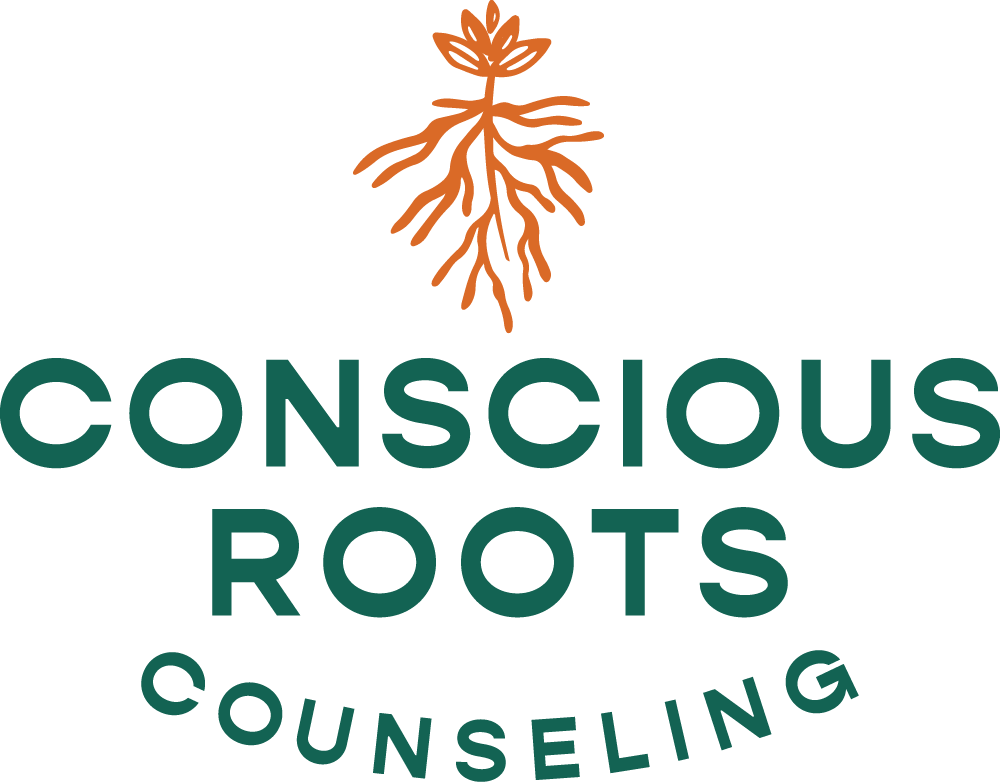What Can I Expect in My First Therapy Session?
I get it. Seeing a therapist for the first time can be scary. It is a totally different type of social interaction than we are used to. So what happens in the first session with a therapist?
Before Your First Session
Most therapists have you complete basic paperwork prior to your first session. This paperwork varies between therapists, but it will definitely include basic demographics, financial information (including insurance), and privacy practices. Therapists also usually include some sort of questionnaire as a means of getting basic information about you. These questionnaires can greatly vary depending on the therapist and their preferences. Some are a few yes/no questions. Other questionnaires are lengthy and require thought out responses.
A Conscious Roots Counseling, all of our initial paperwork is electronic and you complete it at home. Our questionnaires are tailored to children and adults. For parents completing paperwork for their children, we ask about reasons for seeking therapy, history of concern, education of child, relationship between child and family members, and development questions (when child walked, talked, speech, etc.)
For adults, our questionnaires include questions about reasons for seeking counseling, family and partner relationships, history of therapy, goals for therapy, and medical conditions.
First Session
When we work with children, we usually see the parent(s) WITHOUT the child first. It’s really hard to say everything you may need to say about your concerns with your child if they are 2 feet away from you. In that first session, the therapist will ask clarifying questions about the information you already provided. The therapist’s job in the first session is to assess the severity and conditions of the symptoms presented so they can determine what diagnosis fits best (We need a diagnosis to help us determine the best treatment plan or course of action).
If the client is an adolescent/teen, we usually give the client the option of meeting with the therapist alone and/or with parents. We can even split up the session to be a combination of just the parents, just the client, or everyone together. Whatever works best for them.
With adults, the first session is reviewing the questionnaires and asking questions to clarify information. Again, we’re determining what diagnosis fits best.
You can expect your therapist to either take notes using a computer/laptop or writing on a notepad. We’re not writing every detail and we’re not “analyzing” anything. We are simply writing your answers to questions. After the session a therapist must write a summary or assessment and writing/typing notes helps therapists remember your responses.
Examples of Questions
Here are some basic questions a therapist might ask you in the first session. I’m going to use anxiety as an example of a symptom.
When did you first notice symptoms of anxiety? At what age?
When were your symptoms of anxiety the most severe? What was going on in your life at that time?
On a scale of 0-10 (with 10 being the worst anxiety imaginable), how would you rate your anxiety at that time in your life?
How would you rate your anxiety now on that same 0-10 scale?
How often do you experience anxiety? Daily? Weekly? Monthly?
What helps you cope with your anxiety?
In what situations or environments do you feel the least anxious?
Does your anxiety impact any relationships, tasks (job, school, or household), personal ambitions
Questions Beyond Symptoms
Other questions we might ask in the first session help us get a sense of YOU.
What do you like to do in your free time?
Are you religious or spiritual? If so, how do you practice your faith or spirituality?
What people in your life are the most supportive?
What are your strengths?
What are your goals for therapy?
First sessions are usually an hour, sometimes 90 minutes. This is usually not enough time to explain everything about yourself or your experiences - and that’s okay! Throughout your therapy journey your therapist will get to understand you more.
Lastly, remember that therapy works best if you have a trusting and positive relationship with your therapist. Have about 2-3 sessions with a therapist to decide if it’s a right fit for you. The first session is usually heavy on the therapist asking questions about a variety of topics. Following sessions are more focused and you can get a better feel for whether or not you like the therapist’s approach.

